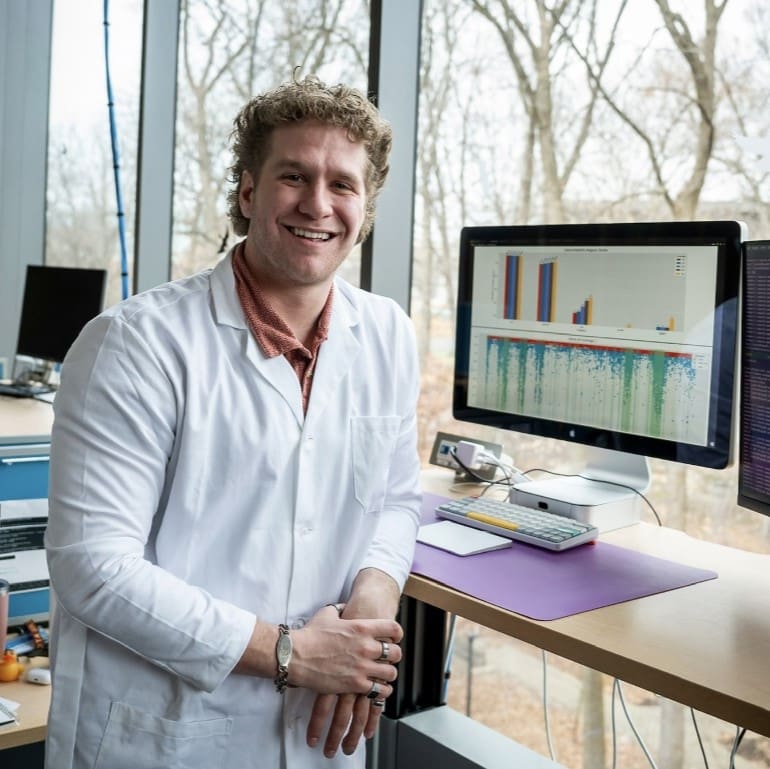Recent advances in high-throughput sequencing have revolutionized genetics and genomics approaches. Studies of heritability and the ascertainment of phenotype are rapidly changing, and CMDB graduate students play active roles in these discoveries. Training in this area is highly quantitative with computational skills taught along with fundamental knowledge in modern genetics and genomics experiments. Studies of evolutionary biology complement biomedically driven research questions to provide numerous opportunities in this study area.
CMDB students perform research in genetics and genomics, including studies of genome assembly, the effects of rare and common variation, ecological and evolutionary genetics, somatic variant effects, and development of new genomics algorithms.
Genetics and Genomics faculty
Our faculty members have a wide range of research specialties. Learn about their work and how you can get connected with our genetics and genomics faculty.
Our research
-
Sources of gene expression variation in a globally diverse human cohort
Non-coding genetic variation influencing gene expression and splicing is the main source of phenotypic variation within and between species. Here we used genome sequences and gene expression data from diverse human populations to better understand these links, toward more accurate and generalizable models for precision medicine.
-
Naturally occurring variation in a cytochrome P450 modifies thiabendazole responses independently of beta-tubulin
Parasitic nematodes infect billions of people yet we have limited drugs to treat these infections. Here, we discovered the first novel mechanism of benzimidazole resistance in over forty years.
Student Profiles

